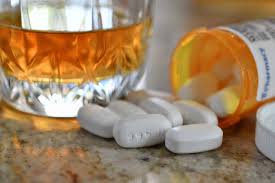
Safe Drinking Guidelines: How to Avoid Alcohol Medication Interactions
Alcohol and medication, while often taken separately for various reasons, can become a dangerous combination when mixed. Understanding the risks associated with this combination is crucial for maintaining optimal health. Dive into the intricate relationship between alcohol, medication, and potential health consequences in the following sections

Alcohol is a common social lubricant enjoyed by many around the world, while medications are often necessary for maintaining and improving health. However, combining the two can have serious and even life-threatening consequences. In this post, we will explore why it is not a good idea to mix alcohol with medication.
- Reduced Effectiveness of Medication
When you consume alcohol while taking medication, it can interfere with the drug’s intended effects. Some medications work by altering the body’s chemical balance to achieve a therapeutic outcome. One of the primary reasons to avoid mixing alcohol with medication is that it can reduce the effectiveness of the prescribed drugs. Alcohol is a central nervous system depressant that can counteract these effects. This can lead to the medication becoming less effective or completely ineffective, making your treatment less successful. Alcohol can interfere with the absorption, metabolism, and elimination of medications, making them less potent or even completely ineffective. This can be especially dangerous when you’re relying on medication to manage a chronic health condition.
- Increased Risk of Side Effects
Combining alcohol and medication can amplify the effects of both substances and lead to unpredictable and potentially harmful side effects. For example, drowsiness, dizziness, and nausea, vomiting, impaired coordination, and even hallucinations are common side effects of many medications. Alcohol can intensify these symptoms, making you feel even more unwell. Moreover, the combination may cause blurred vision, impaired coordination, and difficulty concentrating, which can pose serious safety risks. These symptoms can endanger your safety and the safety of others.
3. Mental Health Concerns
For individuals taking medications for mental health conditions such as depression, anxiety, or bipolar disorder, alcohol can be particularly detrimental. Alcohol is a depressant and can counteract the effects of antidepressants and mood stabilizers, potentially exacerbating symptoms and triggering mood swings or episodes. Alcohol is known to affect mood and mental well-being. Combining alcohol with medications designed to treat mental health conditions, such as antidepressants or antianxiety medications, can disrupt the intended therapeutic effects. This can lead to worsening symptoms, exacerbating mental health issues, and increasing the risk of mood swings, anxiety, or even suicidal thoughts.
- Liver Strain and Toxicity
Both alcohol and medication are metabolized by the liver. When you consume alcohol, your liver prioritizes processing it, potentially causing a backlog in the metabolism of medications. When you consume alcohol while taking medication, your liver has to work overtime to process both substances simultaneously. This added strain can lead to liver damage and even failure over time. Certain medications, such as acetaminophen (Tylenol), are particularly risky when mixed with alcohol, as they can increase the risk of liver toxicity.
- Potential for Dangerous Interactions
Many medications have specific interactions with alcohol that can be extremely dangerous. Some combinations can lead to adverse reactions like dangerously high blood pressure, rapid heart rate, or even seizures. Mixing alcohol with certain categories of drugs, such as opioids, sedatives, or benzodiazepines, can be particularly lethal. Both alcohol and these drugs can depress the central nervous system, leading to respiratory depression, unconsciousness, and even death. The risk of overdose significantly increases when the two are combined, especially if consumed in high quantities.
5. Impaired Decision-Making
Alcohol impairs judgment and inhibitions, which can lead to dangerous decisions regarding medication use. People who have been drinking may forget whether they’ve taken their medication or accidentally overdose by taking more than prescribed.
6. Worsening of Underlying Health Conditions
Consuming alcohol alongside medications to manage chronic health conditions such as diabetes, hypertension, or mental health disorders can exacerbate these conditions. For instance, alcohol can raise blood pressure and interfere with blood sugar control, making it harder to manage these conditions effectively. Additionally, alcohol is a depressant that can worsen the symptoms of anxiety and depression, negating the benefits of medications prescribed for these mental health issues. Chronic mixing of alcohol and medication can have severe long-term health consequences. It can lead to gastrointestinal bleeding, damage to vital organs, addiction to both substances, and a decline in overall physical and mental health.
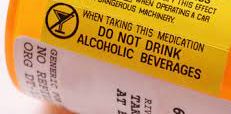
Mixing alcohol with medication is a risky endeavor that can have severe consequences for your health and well-being and should be avoided at all costs. It can diminish the effectiveness of your medication, increase the risk of side effects, harm your liver, negatively impact your mental health, and pose serious cardiovascular risks. To ensure the safety and effectiveness of your treatment, it’s crucial to follow your healthcare provider’s recommendations and abstain from alcohol while taking medication. If you’re prescribed medication, it’s essential to consult your healthcare provider or pharmacist regarding alcohol use to ensure your safety and the effectiveness of your treatment. Remember, your health is too precious to gamble with, so it’s best to steer clear of the dangerous cocktail of alcohol and medication.
Disclaimer: The information provided in this content is for general informational purposes only. It is not intended as medical or healthcare advice, diagnosis, or treatment. Always seek the advice of a qualified healthcare professional with any questions you may have regarding a medical condition or healthcare decisions.



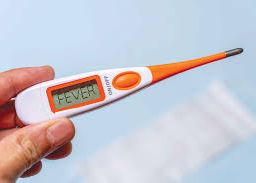



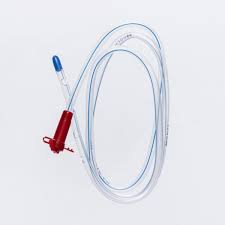

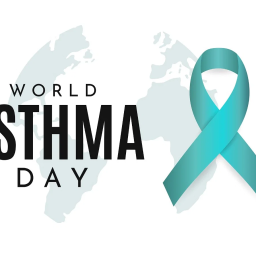





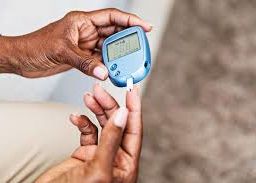
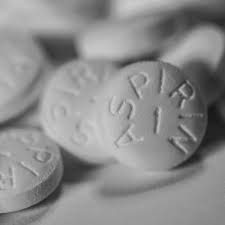
Hi there! This post couldn’t be written any better! Reading through this post reminds me of my previous room mate! He always kept talking about this. I will forward this article to him. Pretty sure he will have a good read. Thank you for sharing!
Undeniably believe that which you said. Your favorite reason seemed to be on the net the easiest thing to be aware of. I say to you, I certainly get annoyed while people consider worries that they plainly don’t know about. You managed to hit the nail upon the top and defined out the whole thing without having side effect , people could take a signal. Will likely be back to get more. Thanks
Youre so cool! I dont suppose Ive learn something like this before. So good to seek out anyone with some original thoughts on this subject. realy thank you for starting this up. this website is one thing that is needed on the web, someone with somewhat originality. useful job for bringing something new to the web!
I happen to be commenting to make you understand what a notable encounter my friend’s daughter encountered going through your web page. She came to find so many things, including how it is like to possess an excellent teaching mindset to get men and women without difficulty understand a number of tricky matters. You really exceeded readers’ expectations. Thanks for churning out such good, healthy, revealing and also fun tips on your topic to Janet.
Very interesting topic, thanks for posting.
excellent post, very informative. I wonder why the other experts of this sector do not notice this. You must continue your writing. I’m sure, you’ve a huge readers’ base already!
Hi there, just became alert to your blog through Google, and found that it’s truly informative. I am gonna watch out for brussels. I’ll appreciate if you continue this in future. Numerous people will be benefited from your writing. Cheers!
Hi, I think your site might be having browser compatibility issues. When I look at your website in Safari, it looks fine but when opening in Internet Explorer, it has some overlapping. I just wanted to give you a quick heads up! Other then that, fantastic blog!
What i don’t understood is in truth how you are now not actually a lot more well-favored than you might be now. You are very intelligent. You know therefore considerably in terms of this subject, produced me personally believe it from a lot of numerous angles. Its like women and men aren’t involved until it is something to accomplish with Woman gaga! Your personal stuffs nice. Always care for it up!
Hello just wanted to give you a quick heads up. The words in your article seem to be running off the screen in Ie. I’m not sure if this is a format issue or something to do with browser compatibility but I figured I’d post to let you know. The layout look great though! Hope you get the issue fixed soon. Kudos
I consider something really interesting about your web site so I saved to bookmarks.
I’d perpetually want to be update on new content on this website , saved to fav! .
You have remarked very interesting details! ps decent website.
Hi there just wanted to give you a quick heads up. The words in your post seem to be running off the screen in Chrome. I’m not sure if this is a format issue or something to do with web browser compatibility but I thought I’d post to let you know. The style and design look great though! Hope you get the problem fixed soon. Kudos
You are a very intelligent individual!
Great work! This is the type of info that should be shared around the internet. Shame on the search engines for not positioning this post higher! Come on over and visit my website . Thanks =)
My husband and i felt quite satisfied when Chris could complete his studies from your ideas he got out of your web pages. It is now and again perplexing just to continually be making a gift of solutions which usually people may have been trying to sell. And now we keep in mind we have the website owner to be grateful to for this. The type of explanations you made, the easy web site navigation, the friendships you can assist to promote – it is all overwhelming, and it’s really facilitating our son and the family reckon that the matter is entertaining, and that’s truly pressing. Many thanks for the whole lot!
Very interesting details you have remarked, thankyou for putting up.
Hello. fantastic job. I did not anticipate this. This is a splendid story. Thanks!
I’m not that much of a internet reader to be honest but your blogs really nice, keep it up! I’ll go ahead and bookmark your site to come back in the future. Many thanks
I was suggested this website by my cousin. I am not sure whether this post is written by him as nobody else know such detailed about my difficulty. You’re wonderful! Thanks!
Thank you for some other fantastic article. The place else could anybody get that type of information in such an ideal way of writing? I have a presentation next week, and I’m on the look for such info.